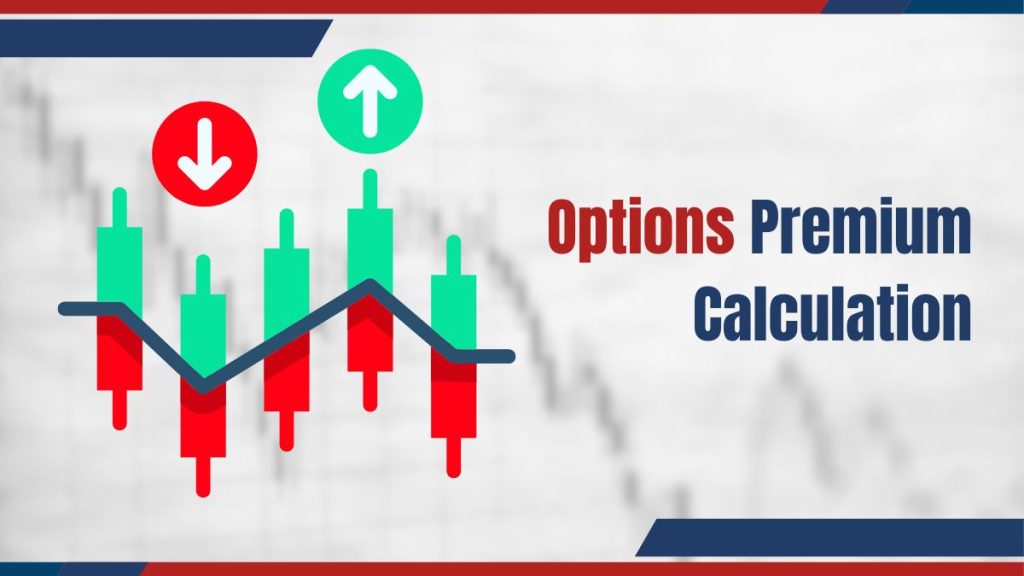Becoming a day trader can be an exciting and rewarding endeavor, although it isn’t without its risks. A great overview of what is required to become a successful day trader starts with understanding the basics of trading.
While there are many different types of investments, day traders focus on shorter-term bets, meaning trades that are exited within the same day or even a few hours after entering. This means that traders need to understand market conditions, news reports, and trends in order to accurately assess and act on the right opportunities. Being an effective day trader also requires an in-depth knowledge of how to read charts and technical indicators such as Moving Averages or Relative Strength Index (RSI).
Additionally, becoming a day trader requires having access to adequate capital resources so you have enough funds available to make calculated risks. Typically you can begin trading with anywhere from 30,000 – 50,000 which covers setup costs and allows for trading multiple stocks or options simultaneously.
Once you have access to the capital, you’ll want to find the right online broker platform and learn how it works so you feel confident before making any live trades. With proper understanding and practice with simulated trades beforehand, anyone can become a successful day trader.
What is day trading, and how does it work?
Day trading is an intriguing form of stock market investing that has become increasingly popular in the last few years. By taking advantage of short-term price movements and trends, day traders actively try to maximize their profits.
The idea behind this system is to buy and sell individual stocks in a single day, rarely holding onto any for more than 24 hours. This relatively rapid buying and selling can mean sizable profits for those savvy enough to know when and how to act on changing market conditions.
As with anything, there are risks associated with day trading; however, if you’re armed with the knowledge of how it works, you could find these rewards too enticing to ignore.
Set aside funds
Setting aside funds for day trading can be a great way to increase your investments and take advantage of short-term opportunities in the stock market. Not only does it provide the luxury of flexibility when entering and exiting positions, but it also puts you in a better position than other traders who have limited risk capital.
With careful planning, diversification, and discipline, day trading can be a great tool in building long-term wealth. The best part is that even with a small amount of money, you can still position yourself to generate substantial returns.
So if you’re looking for ways to increase your investment outcomes, consider setting aside some funds to take advantage of intra-day trading opportunities.
Converting knowledge to skill by practicing in a Day Trading simulator
Investing in the stock market is a great way to grow your wealth, but it can be intimidating at first because of the unpredictability of markets. To make trading easier and less stressful, it is highly recommended to hone your skills using a day trading simulator.
Doing so provides a safe environment for learning the basics – such as when the right time to buy or sell is – and exploring strategies without risking any money. A simulator also teaches risk management techniques that are essential to successful trading by allowing you to go through scenarios while having complete control over the market prices.
Furthermore, it will introduce you to advanced concepts and financial market analysis that may be very useful if you decide to pursue serious investing in the future. Investing in day trading simulations is an excellent starting point for any investor who wants to familarize themselves with industry practices while avoiding heavy losses due to inexperience.
Understand the risks and challenges of becoming a day trader
Day trading has become an increasingly popular way to make a living, with the hopes of getting rich quickly, but it’s important to understand that there is risk involved.
Every day traders’ success depends on their own education, commitment and motivation – there is no guarantee that you’ll make money. You need to research the market, watch for upcoming trends and develop a strategy before entering the stock market.
It’s also critical that you have sufficient funds to survive the inevitable times of losses that come with day trading. This means having enough capital behind you so that you can survive days or weeks when trades don’t go your way and still have enough money left over to cushion other risks or opportunities.
Despite these challenges, day trading offers a great opportunity to earn huge returns if you’re willing to put in the work and are aware of the risks.
What you need before you start Day Trading
Day trading can be an exciting and profitable way to invest in the stock market. However, it is essential to have all the necessary prerequisites in place before you get started. These include a proper understanding of investment strategies, knowledge of technical indicators, and a secure internet connection with which to access your trading platform. Enhance your intraday trading strategies with our advanced trading platform.
You must also know what type of trades you are willing to make and have sufficient liquidity in your account for short sell orders. Make sure you also select the right trading software based on what kind of investor you are and how many stocks you trade.
Finally, ensure that your trading plan is in line with your financial goals. With these prerequisites properly established, day trading will provide an exhilarating experience and hopefully rewarding returns!
Are penny stocks the same as day trading?
Penny stocks and day trading may have similar objectives, but they are not the same. Penny stocks are exchanges of low-cost stocks that often carry higher risks, whereas day trading refers to the practice of buying and selling securities within a single business day.
Day traders typically target less volatile and more liquid markets, such as those for large-cap stocks, options and futures. While both feats require great analysis skills, risk assessment and decision-making abilities, penny stockholders must pay much closer attention to market trends due to their narrow margins.
Additionally, penny stock traders are often focused on uncovering hidden gems among heavily discounted equities with low liquidity levels. In these cases success may depend upon one-on-one interaction with individual companies or their representatives; which puts a larger burden upon the investor’s shoulders. All these elements prove that penny stocks are very different from day trading.
Start Small
Starting small is an important factor to consider when exploring day trading, as it can reduce the risk of large losses and provide time to gain experience. There are several methods of starting small, such as beginning with a practice account or placing smaller trades compared to those by more experienced traders. Setting realistic goals is also key for beginners, as it will help to prevent rash decisions or high-stakes gambles.
Time those trades
When beginning with day trading, it is important to understand the importance of timing your trades. Every second counts when trading in the stock market, and timing can make the difference between success and failure. Knowing when to buy or sell a stock can mean the difference between a profitable trade and a loss.
To time trades correctly, traders need to learn how to read market trends and stay informed on the latest news. They must also be aware of the different trading styles, such as day trading, swing trading and scalping, and choose the one that fits their personality and goals. Finally, they must monitor their financial situation regularly and adjust trades accordingly. With knowledge of these factors, traders can maximize their chances of success.
Cut losses with Limit Orders
Cutting losses with limit orders is an important part of day trading. Limit orders allow traders to pre-set their desired trade prices and ensure that they can exit the market at a specific point if the stock does not perform as expected.
This method allows traders to control the risk associated with their trades, as it eliminates the possibility of taking a large loss due to an unexpected market move. Additionally, limit orders can be used as a method of entering the market at a predetermined price, which can help traders set their desired entry and exit points.
In order to make the most of their limit orders, traders should assess their risk tolerance before placing them. This will help them choose the right order type, as well as the right price. By setting realistic expectations, traders can minimize their risks and maximize their profits.
How to determine the best day trading stocks
First, traders should consider what they want to achieve with their strategy; are they looking to make short-term profits or seeking more stability over a longer period?
Additionally, traders should look for stocks with sufficient liquidity, meaning that there must be enough available buyers and sellers in order to make transactions quickly.
Finally, careful consideration should be taken when selecting stocks so that potential risks are known before investing. Taking all these factors into account greatly increases the chances of selecting a successful and profitable day trading stock.
Day trading with Cash vs. Margin
Day trading with cash versus margin is a decision that requires careful consideration. Depending on your financial situation and goals as a day trader, one method may be better suited to you than the other. If you have the funds available, trading with cash can help maintain relative control over risk, as it allows traders to lock in losses without having to wait for margin calls.
On the other hand, traders who prefer to take larger positions with leverage may find that trading on margin provides them with the opportunity to maximize their profits quickly; however, this may also leave them exposed when markets drop suddenly.
Evaluating both scenarios and understanding their potential risks and rewards will help ensure that choice of cash or margin is best suited for your own particular situation.
Trade execution
Trade execution is an essential part of day trading and refers to the completion of a transaction from start to finish. It involves several steps, such as deciding which stocks to trade, setting up orders for those stocks, and executing the orders when the markets are open.
To be successful in day trading, traders must understand how to take into account various market conditions, like volatility and liquidity, when executing trades. Additionally, it’s important to know how to choose the right order type for each trade in order to ensure that the transaction is completed as planned.
By mastering trade execution techniques, traders can maximize their chances of success with confidence.
Research the market, strategies, and potential platforms
When it comes to day trading, researching the market, strategies, and potential platforms is essential to success. Market research involves gaining a thorough understanding of what drives stock prices and how different events can affect them.
Traders should also familiarize themselves with the tools they will need to make informed decisions on when to enter and exit their trades. This includes understanding different strategies and tools, such as technical analysis, charting, and limit orders.
Finally, it’s important to research the available trading platforms so that you can choose one which best suits your needs. By taking the time to thoroughly research the market, strategies, and potential platforms before trading, traders can increase their chances of successful investments.
What is Day Trading?
Day trading is a unique and exciting way to invest in the stock market, giving you the opportunity to utilize your knowledge and insight to make quick profits. It’s a strategy used by investors to buy and sell stocks on the same day, taking advantage of short-lived price fluctuations throughout each trading session.
But successful day traders don’t just rely on luck – they need to understand what drives stock prices up and down, have a strong risk management strategy and be able to analyze the charts quickly.
However, it can be incredibly rewarding if done correctly, allowing you to capture small gains that add up over time for tremendous return on investment. If you are looking for an alternative way of investing in the markets that allows you to use your skills, then look no further – day trading could be just what you’re looking for!
Price-to-earnings (P/E) ratio
Price-to-earnings (P/E) ratio is a financial metric that can be used to help investors decide which stocks offer the best value. The ratio reveals the amount an investor is willing to pay for each dollar of a company’s earnings and indicates how much an investor believes the business will grow in the future.
It takes into account both the current stock price and historical earnings and allows investors to compare performance across various industries. While no one ratio is ideal, a P/E analysis can provide insight into market trends, particularly when compared to the S&P 500 index or similar benchmarks.
Long term investors should certainly consider analyzing P/E ratios before purchasing any stock as it is a key indicator of investor sentiment and stock value.
What makes Day Trading difficult?
Day trading certainly has its rewards, but there are many reasons why it can be one of the most difficult types of trading. Firstly, day traders need to be incredibly disciplined and organized in order to stay ahead of the game; they must be able to track data and react quickly and efficiently.
What’s more, day traders must also be extremely knowledgeable about their chosen security so that they can make informed decisions about when is the best time to buy or sell an asset. Furthermore, markets are highly unpredictable and unpredictable forces can affect the security price, making forecasting difficult even for experienced traders. Ultimately, successful day trading requires a combination of discipline, knowledge and luck.
Is Day Trading good for beginners?
For those just starting out career in the stock market, day trading can be a complex but potentially profitable venture. While some people think that it should be mostly left to seasoned and experienced investors, when done responsibly and with a reasonable amount of knowledge about the markets, day trading can bring solid long-term gains for novices.
By familiarizing oneself with the best practices and managing risk appropriately, beginners can engage in various strategies such as scalping or momentum to maximize their profits. Of course, it is important to remain disciplined in one’s approach if they are ever to become a successful day trader.
With proper management of expectations, growing knowledge over time, and the commitment to continuing education, there is an opportunity for anyone to make a profit using techniques like day trading.
Why is it difficult to make money consistently from Day Trading?
Day trading has long been seen as a reliable way to make money; however, this is actually not the case. Day trading requires a great amount of time and dedication before any money can be made consistently.
Not only is data analytics essential, but traders must also stay on top of constantly-changing market activity, which can require several hours each day of research and analysis to be profitable.
Additionally, knowledge of trading strategies and disciplined execution are skills that take years to develop – ones that are through trial and error more often than not. As such, it shouldn’t come as a surprise that many traders struggle to make consistent gains from day trading.
How to start Day Trading
It takes an incredible amount of research and practice to develop a strategy that works for you, and failure is a real possibility. To give yourself the best chance of succeeding as a day trader, start by familiarizing yourself with the stock market by reading books and articles about it to learn what is stock market, it is the best way to start Day Trading.
Consider setting up a demo account with an online brokerage to practice your trades without risking any real money. Once you feel confident enough to begin making actual trades, begin with smaller amounts to help you get used to the system without risking too much capital at once. With patience and knowledge, day trading can be a lucrative option for modern investors.
Be realistic about profits
When it comes to day trading, it is important to be realistic about the potential profits. Despite its potential as a lucrative option for modern investors, day trading is no get-rich-quick scheme and requires dedication, knowledge, and discipline to succeed.
This means that traders should not expect quick returns or large gains from their trades. Instead, they should focus on making small, consistent profits by executing strategies that they have practiced and are familiar with. It is also important to remember to manage risk appropriately and not enter into any trades that they cannot afford to lose.
By understanding their strengths and weaknesses as a day trader, setting clear goals, and managing expectations accordingly, it’s possible for even beginners to make consistent gains from day trading.
Strong knowledge of the Day Trading Terminology and Technical Analysis
If you want to position yourself as a successful day trader, having a strong knowledge of the terminology and technical analysis related to the practice is essential. Without this understanding, it can be difficult to accurately interpret the markets and generate trading signals that are profitable.
When done correctly, the use of important terms and the application of analytical principles can be both highly rewarding and exciting. With current technology making it easier than ever to gain access to financial markets around the world, now is a great time to educate yourself on day trading fundamentals and strive for success in this arena.
How much money do you need for Day Trading?
The amount of money you need for day trading varies depending on the type of day trader you want to be. A conservative day trader typically has a lower starting capital than those who are more aggressive.
It’s important to remember that the initial capital should always reflect your risk tolerance, with beginner traders typically starting at an entry-level budget and building their portfolio as they grow in confidence and experience.
Day trading can be a great way to achieve financial freedom if done responsibly and knowledgeably, so it’s essential to invest wisely when starting out as a day trader.
Developing a profitable day trading strategy or adopting a proven day trading strategy
To really succeed in day trading the key is to develop an effective strategy and stick with it. The best way to do this is either by developing your own profitable day trading strategy, by taking the time to research the markets and understand how they move and then formulating a rule based trading plan, or by adopting a proven day trading strategy that has already been established by a successful trader.
Either approach will require discipline, dedication, practice and patience. However if done correctly then you have a much greater chance of becoming consistently profitable over time.
Day Trading rules for margin accounts
For traders interested in maximizing their returns through day trading, margin accounts offer an opportunity to leverage their investments. Margin accounts, however, come with specific rules and regulations you need to understand before entering the market.
Pay attention to the allowable leverage levels, interest rates, required account balance levels, limits on short selling and other restrictions that can affect your success when day trading with a margin account.
Be sure to assess the risks associated with using margin and how they fit into your overall investment strategy before taking advantage of leveraging opportunities offered by margins accounts in order to make the most profitable trades.
When is the best time to day trade?
In order to be successful at day trading, there are two key components: timing and strategy. The best times of the day to day trade vary from trader to trader, and many successful traders find that mornings are there most productive time, particularly just after the opening bell.
This is due in part to more liquidity in the markets and also due to fewer distractions as people settle into their workday routines. Whatever time you decide to dedicate to day trading, having access to up-to-date news and market analysis will help you make smart decisions throughout the day.
With dedication and resources, anyone has the potential to create their own path of success through day trading!
Stop-Loss Orders
Stop-Loss Orders are an essential tool for day traders. A stop-loss order is a type of trading order placed with a broker to buy or sell when a stock reaches a certain price. This is done as part of risk management in order to limit any potential losses when trading stocks.
When a stock hits the predetermined price, the order is triggered and the stock is sold, thus limiting any potential losses. Stop-loss orders can be used to help traders stay within a given risk tolerance and make sure that they don’t overtrade their account.
If a trader doesn’t have enough capital to effectively manage their positions, stop-loss orders are essential in helping them trade with discipline and avoid costly mistakes. They are an important tool for any serious day trader!
How much do day traders make
Day traders enjoy tremendous potential profits and can, with the right strategies and market knowledge, be quite successful. As the securities markets have opened up to the individual trader via the internet, many people have chosen to day trade in pursuit of these profits. While day trading is a viable option for some investors, it also carries significant risks.
Ultimately, profits can range significantly depending on the traders’ experience and skill level when it comes to particular markets as well as his or her ability to stay disciplined. Therefore, gaining a thorough understanding of day trading is essential before beginning any such venture should you wish to pursue substantial returns from your trades.
Day Trading strategies for beginners
Day trading can be a daunting task for beginners, especially since there are so many different strategies to choose from. However, by understanding the basics of day trading and learning some of the most common strategies, beginners can find success in this exciting market. Learn more about intraday trading strategies to become a successful trader.
One of the best strategies for beginners is momentum trading. Momentum traders focus on stocks that have recently started to move and are likely to continue in that same direction. The idea here is to take advantage of the initial momentum a stock has, either up or down, and buy or sell accordingly.
Other common strategies for beginners include buying stocks with strong fundamentals, trend following, and scalping. For successful day trading, it’s important to understand the market and be able to identify potential opportunities in order to maximize profits. With dedication, research, and practice, anyone can become a successful day trader!
Set a financial loss limit
Setting a financial loss limit is an important part of risk management for day traders. A financial loss limit is essentially a predetermined value that limits the amount of money that can be lost on each individual trade.
It is an important tool for traders to help stay within a given risk tolerance and make sure that they don’t overtrade their account. If a trader doesn’t have enough capital to effectively manage their positions, stop-loss orders are essential in helping them trade with discipline and avoid costly mistakes. They are an important tool for any serious day trader!





















